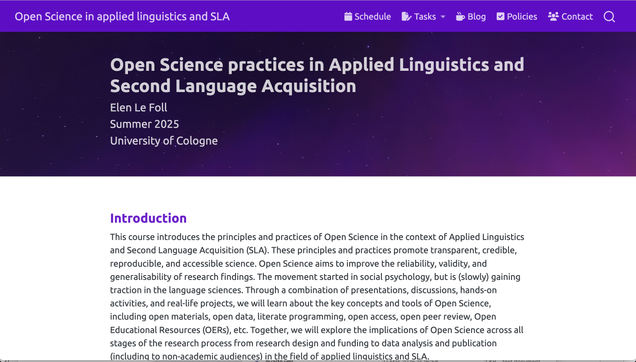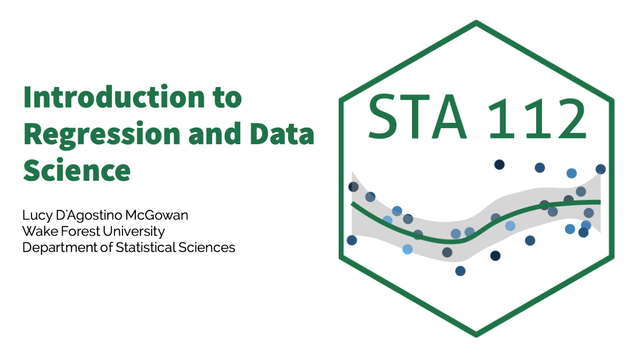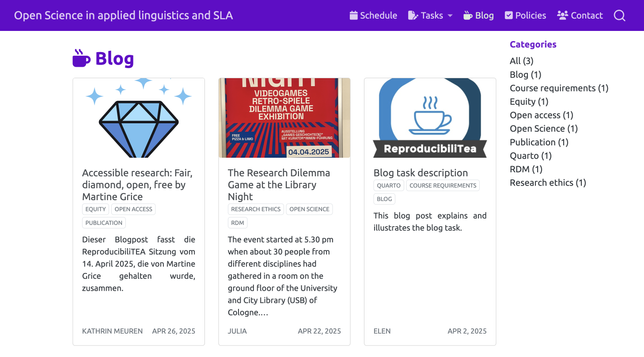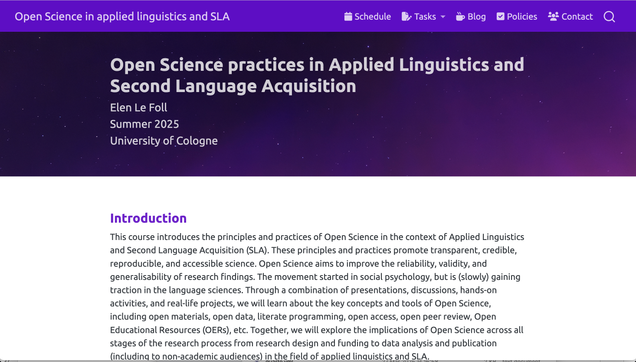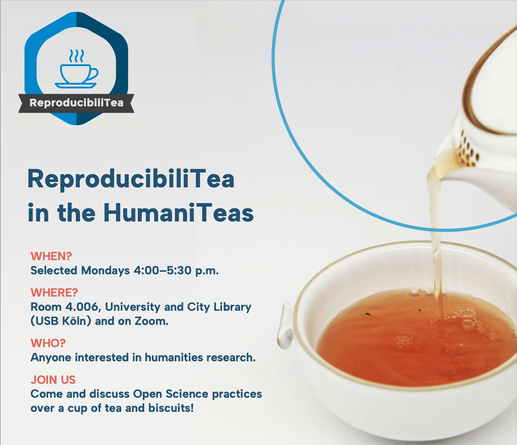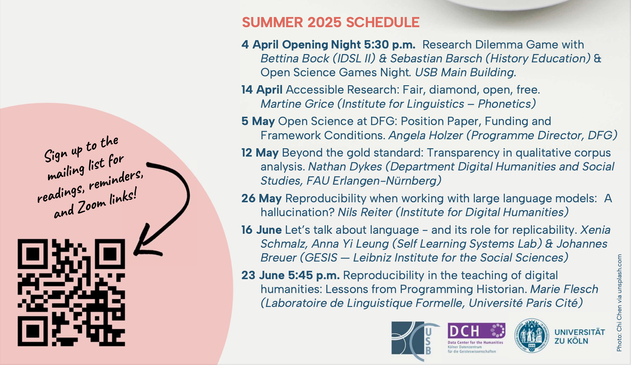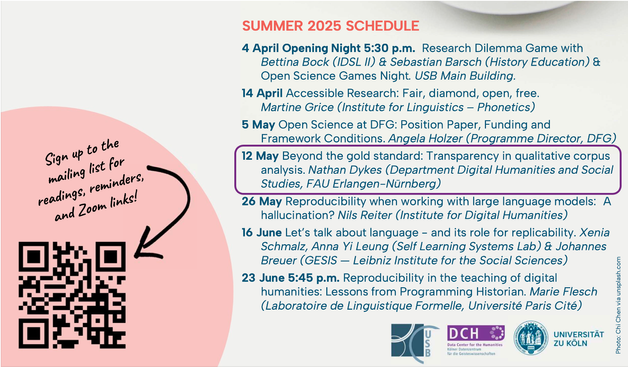This summer semester I'm very excited to teach a brand-new seminar on "Open Science practices in Applied Linguistics and Second Language Acquisition" @UniKoeln! ☀️
Some 20 B.A. and M.A. students studying #linguistics or a Romance language (+ one post-doc) signed up for this rather experimental course, many of whom had never heard of #OpenScience before. For this course, I've ditched the University's learning management system (ILIAS) and opted for a maximally open way to share teaching materials as I go along: https://elenlefoll.quarto.pub/os-linguistics2025/. 
Students are also required to attend at least two #ReproducibiliTea in the #HumaniTeas session and to co-author a blog post about one session. Very curious to see how things will pan out! 🤓
